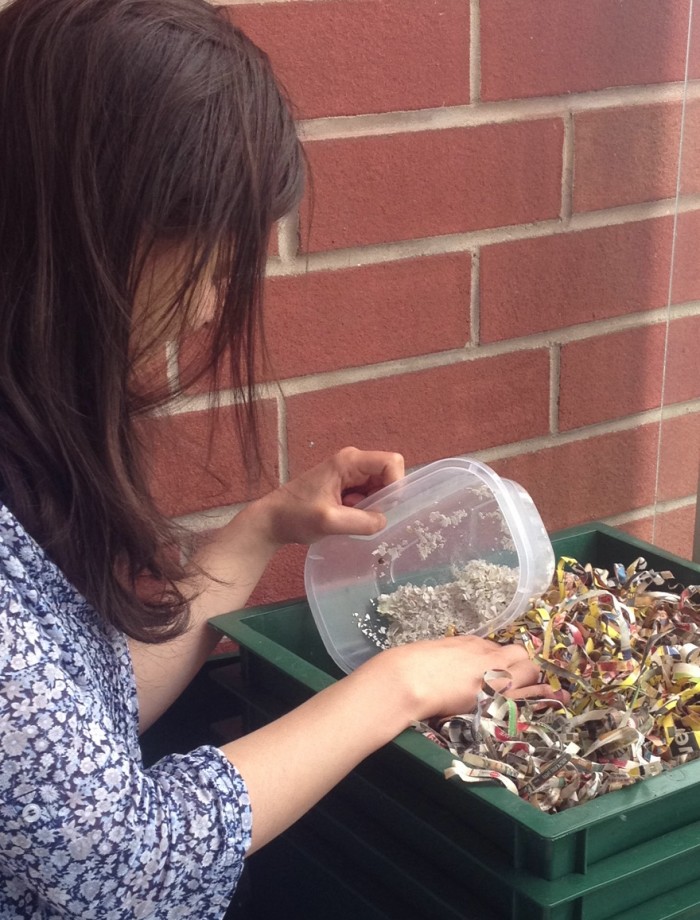
Food waste was a normal part of my life.
Every week, I threw out past-due or rotting food, not to mention the loads of food scraps. All of this went straight to garbage and from there, to the landfill.
Food waste in North America is a huge issue. In industrialized countries, individuals and businesses are responsible for throwing away nearly 40% of all food that is produced. {1}
Sadly, I was part of that statistic, and the worse part is that I didn’t even care.
For so many of us, throwing away food and organic matter was just a normal part of living. But it’s not right and is hugely damaging to the environment. The good news? Changing this is easy.
On a whim, I visited an “eco-house.” This eco-house was established to demonstrate how to transform a home into a green and sustainable living space.
This house used an array of water and energy-saving devices, was powered by solar and was cleaned only with organic cleaners. This is all very impressive, but there was one element of the house that really blew me away…
The house sent almost no waste to the landfill!
How could this be?
The owners led me to the back of the eco-house to show me an unassuming box. The box was full of worms! The kicker? Those worms consumed all of the house’s organic waste.
I was blown away. As soon as I was able, I got set up with my own bin and set of worms.
This one act catapulted me into leading a more sustainable life by helping me reduce my food waste.
The concept of worm bin composting is still new, but it’s a simple process.
Living in their bin, worms eat your food scraps and then poop out nutrient-dense and ready-to-use compost. The compost that results can be used in both house and edible garden plants.
It has several advantages over other types of composting methods:
1. It can be done indoors, therefore all year long—great for apartment dwellers like me.
2. Worm composting can take waste to compost state in as little as 2 months—compared to traditional compost that takes 6 months or more.
3. The compost produced is superior to almost anything you can buy in stores.
Owning a worm bin has helped me almost completely eliminate the food scraps and other biodegradable waste I was sending to the landfill. And this was a whole lot of waste—nearly 70% of our waste is compostable.
The worms helped me reevaluate my wasteful habits.
As I redirected my organic waste to the worm bin, I realized how much food waste I was producing. It felt horrible knowing I was throwing out so much food that even my huge worm bin couldn’t process it.
I started doing the following things which helped me reduce my food waste:
1. I started creating a weekly plan for my meals and sticking strictly to it.
2. I started doing two small grocery trips instead of one large one. This allows me to change course should anything change during the week.
3. Freezing food that are sold in large portions—for example, chopping up part of a celery and freezing it.
4. Deliberately buying smaller versions of foods and generally staying away from bulk if I knew I couldn’t finish it—even if more expensive.
Owning a worm bin has drastically changed the way I view and produce food waste.
I believe that it can change your view as well. I hope you will all open your arms to these amazing critters and feed their hungry mouths!
Sources Cited:
1. [http://www.fao.org/docrep/014/mb060e/mb060e.pdf].
~
Relephant Read:
Composting Reduces Household Waste by 80%. Do It In Your Backyard, or On Your Balcony.
~
Author: Assya Barrette
Editor: Renee Jahnke
Image: Courtesy of Author
 Share on bsky
Share on bsky

Read 3 comments and reply